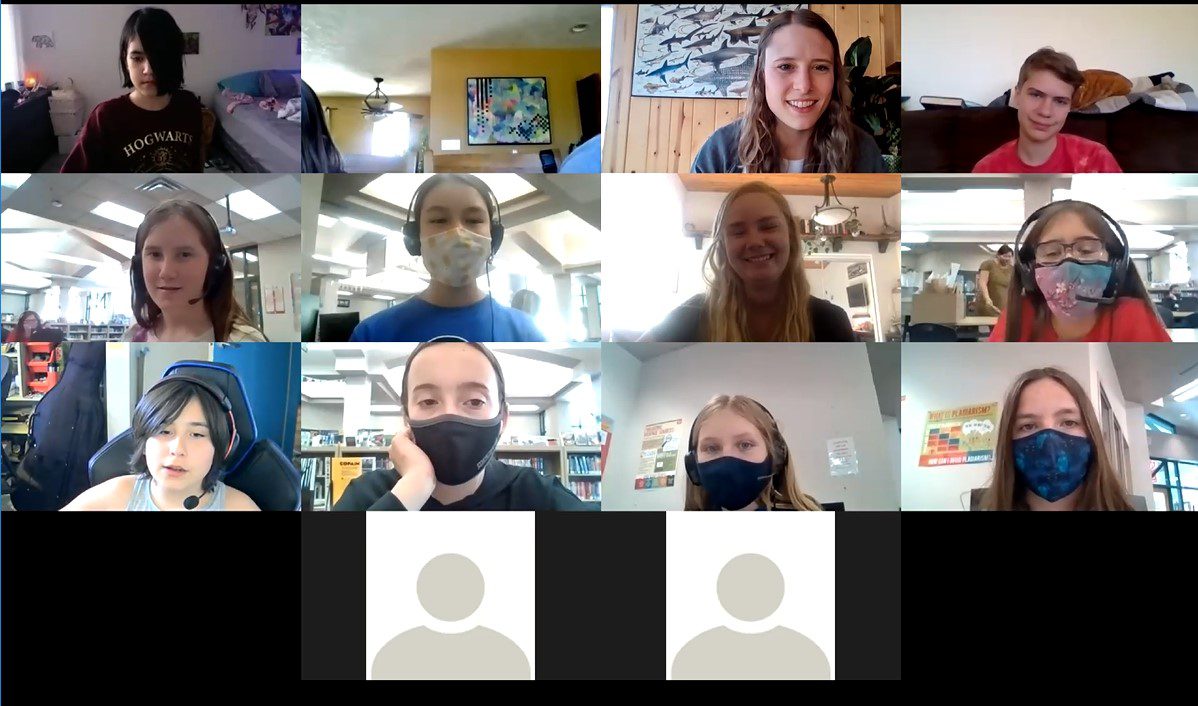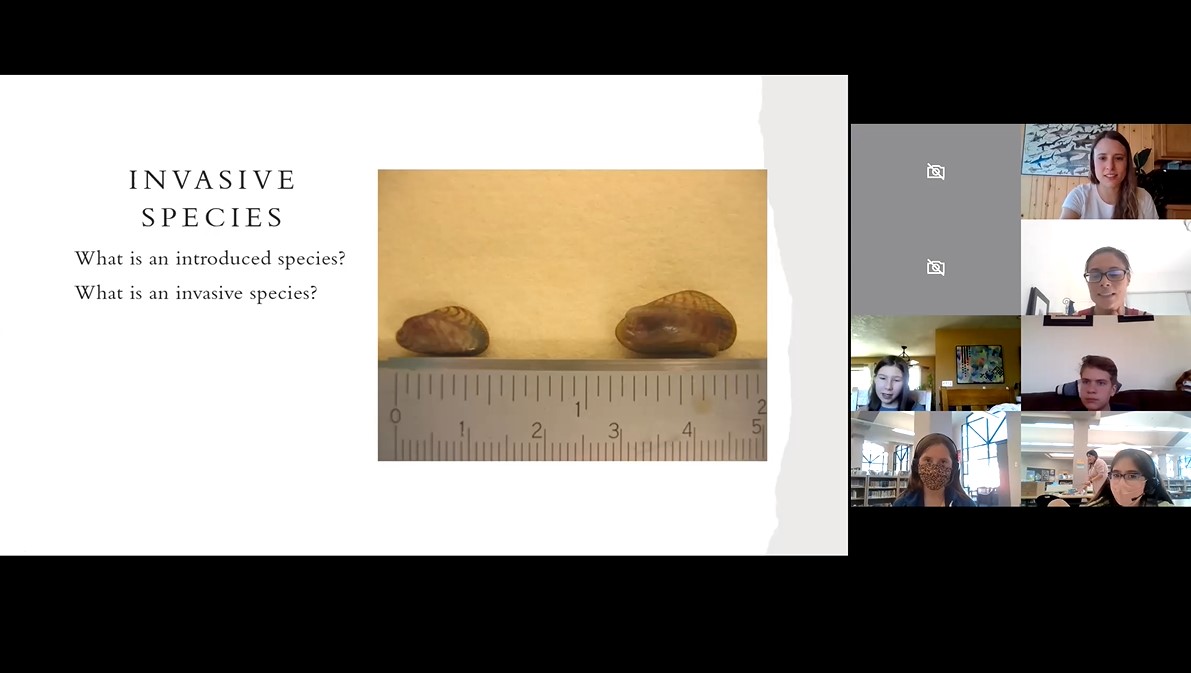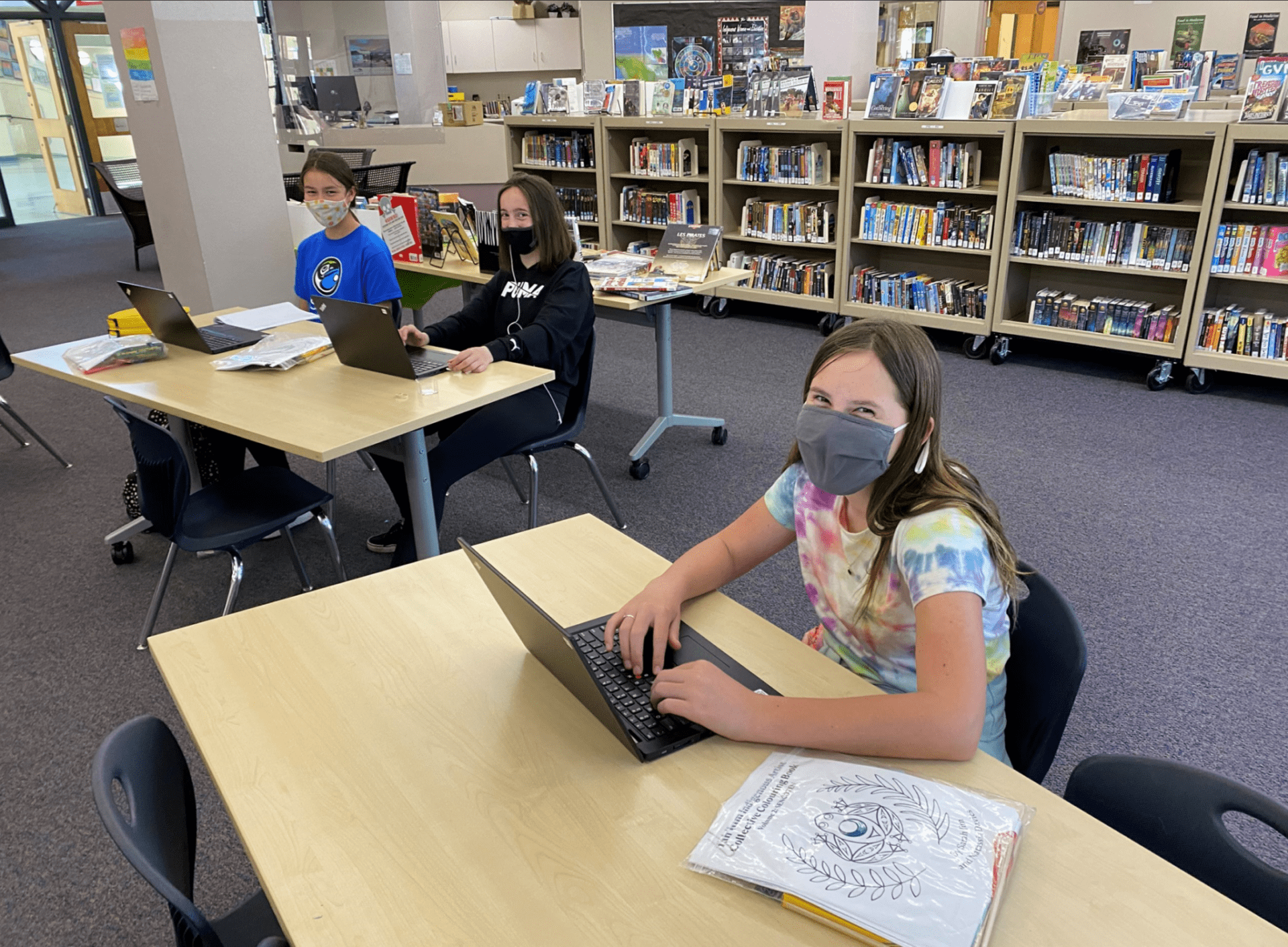Indigenous Youth become Marine Biologists in Training
Back to Posts
Indigenous Youth become Marine Biologists in Training
In May of 2021, an extraordinary program took place.
Each day after school, 16 girls from nine Indigenous communities across BC and Alberta logged onto their computers for a free after-school program focused on marine biology.
For an hour and a half each day, the students were captivated as they learned about influential women from around the world who are leading efforts to protect the ocean in their home communities. They conducted their own scientific experiments and created reports based on research questions of their own choosing.
Training Future Scientists
Hosting the Marine Biologist in Training (MBIT) after-school program for Indigenous girls began with a collaboration between SCWIST and Sea Smart, a charity that delivers a range of educational programs focused on current ocean issues while empowers youth, businesses, teachers, and communities to take action and create a wave of change throughout the world.
SCWIST has long been concerned with the underrepresentation of women in STEM. Through their collaboration with Sea Smart, they hoped to reduce that imbalance by offering the program for free to families and communities who would otherwise not be able to attend.
Despite the title, the program is about more than marine biology. It’s about teaching the girls about STEM and exposing them to the diversity of careers within marine sciences.
Key to helping with that exposure were program lead Brittany Ahmann, and guest speakers Aroha Miller and Karyssa Arnett.
Brittany, who holds a Bachelor of Science from the University of Victoria focused on marine biology, led the online classes for the youth. With a background that varies from coral reef monitoring to environmental education, she was able to share her enthusiasm for the ocean and inspire the girls to fall in love with the ocean and science. And it didn’t hurt that she mixed in lots of Kahoot sessions, games, videos and songs that taught the participants about marine sciences into her lessons!
The first guest speaker to join the class was Aroha Miller, who works in Aotearoa (the Maori name for New Zealand, which means ‘the long white cloud’) and is a member of the Maori community. She shared some of her traditional knowledge and about her work with invasive marine species.
Karyssa Arnett was the second visitor. She is the Executive Director at Strawberry Isle Marine Research Society (SIMRS) and shared the story of how she got to her current position and about the diversity of work SIMRS does to protect the ocean.

Student-Led Success
Although there are many highlights and bright spots in the program, Brittany maintains that the research projects are the best part of the week. Students picked their research question, came up with a hypothesis, made observations, interpreted their data, and, on the last day, presented their findings.
The questions that came in surprised Brittany with their range of depth, humour and intelligence. What food do garden snails prefer? What are the impacts of ocean acidification? Which nearby beach collects the most trash? How do barnacles eat? How many squirrels are there in my backyard? How do the cell sizes of various plant leaves compare?
On the last day of camp, each girl shared the research they had completed and what they had learned. Even the quietest and shyest among them got excited and animated as they spoke about their projects.
While their time together was short — only a few hours after school — at the end of the week, the girls went home with a new vision of the careers available to them, and a love for the world’s oceans and science sparked in them all.

Parents Joining the Joy
My daughter has been loving the program! Our family lives with extended family (like many indigenous families) – kids are at home from school. Group learning activities are so important. Did not realize how interested she is in biology, and now marine biology. It’s been an amazing opportunity. She is super stoked about the guest speakers – people from far away! We are hearing about their work. Our family is exactly the type of family this program is intended for. Lower-income, can’t usually afford these programs. Would not have previously thought that my daughter would be into marine biology. — Want to express gratitude to funders. — Parent of a Participant
Keep in Touch
- Stay up to date with all the latest SCWIST news and events by connecting with us on LinkedIn, Facebook, Instagram and X, or by subscribing to our newsletter.